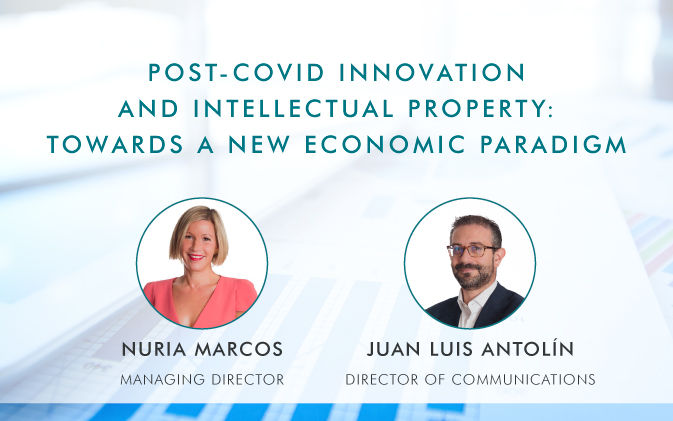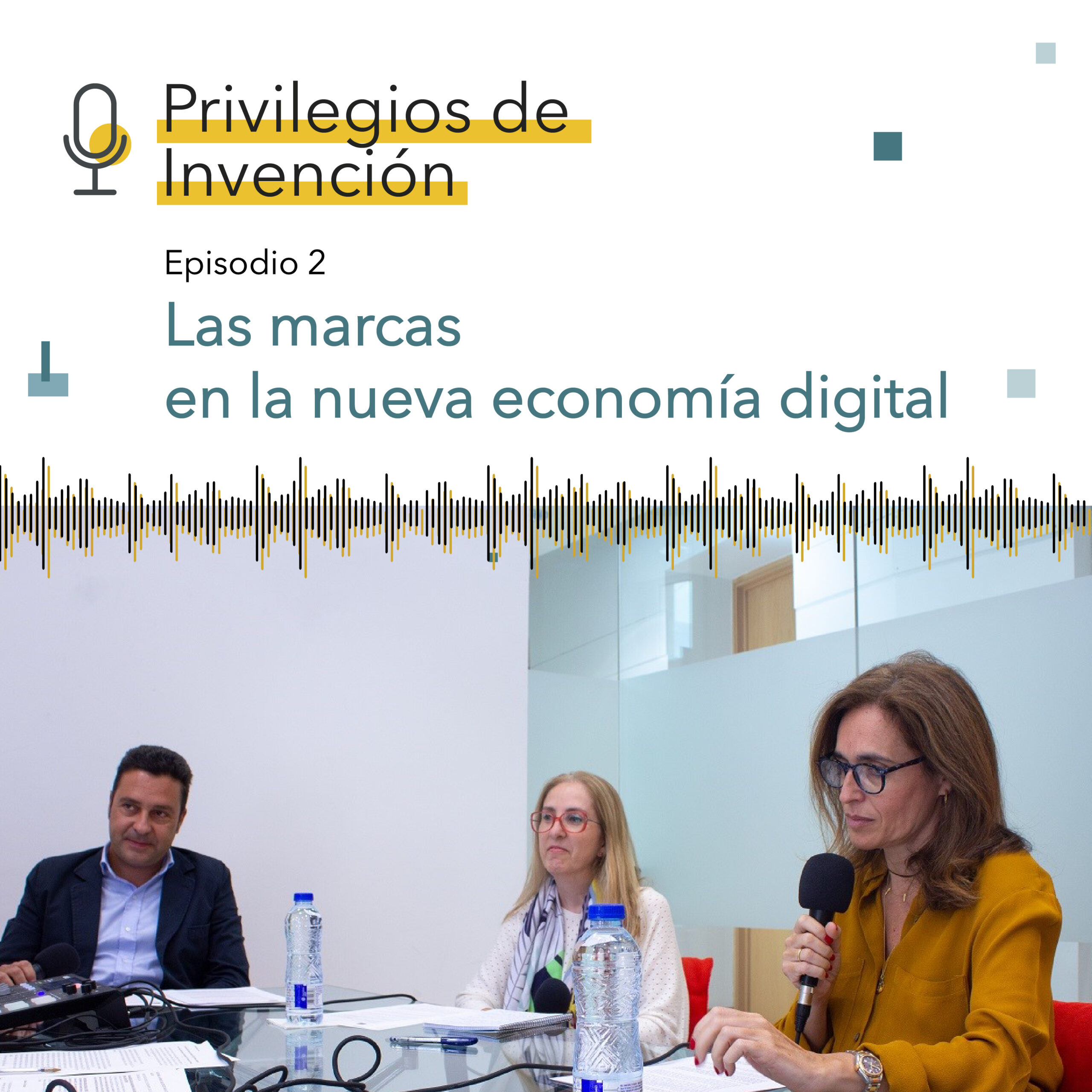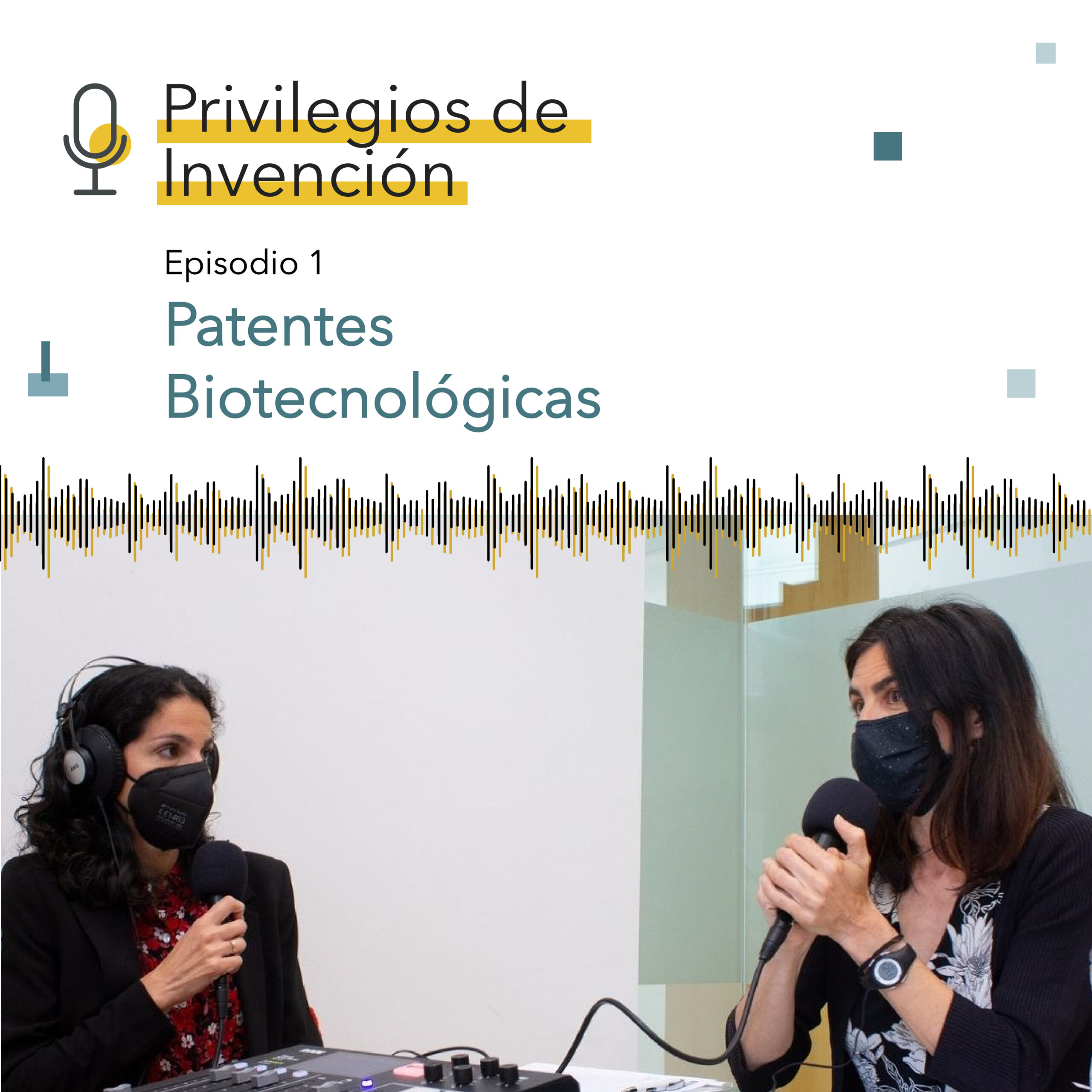Only six months ago, we were hit by the worst health crisis in the last 100 years. The use of new technologies and several changes driven by the needs arising from the pandemic are here to stay: new ways of working, innovating, and relating or communicating with others. Regarding Intellectual Property (IP), the situation has brought about great opportunities but also great challenges. Running out of time to make a balance, we are already going through the second COVID-19 outbreak. This scenario is being addressed by companies as a turning point, probably the most important one in their entire experience, with a lot of questions, but also with some certainties: innovation has proven to be the most effective way to continue growing as well as the solution to the main challenges of society.
The major and most urgent challenge for the world, and also for the IP sector, was to control the public health crisis by acquiring vaccines, treatments, prevention systems, and safe cures accessible to the entire population, especially in Spain. In record time, companies and public entities have focused on supporting innovation and technology transfer to achieve effective results, mitigating the impact of the pandemic on the health of citizens by drawing on the resources and legal instruments that IP provides. This demanding context shows that, in order to innovate, results must be launched or applied. It is not enough to rely on hopeful results in laboratories. An effective model must be developed to transfer inventions to citizens. To accomplish this purpose, we must rely on the tools provided by IP management.
As a result of this effort, this summer, we could enjoy some sun rays we have been glimpsing during our daily activity at PONS IP. We finally abandoned the statistical basis on which patents from our country were, a trend that has continued even after the end of the State of Alarm. We have also noticed tangible changes in the attitude, the definition of objectives and the scope of innovation projects among Spanish companies.
From our point of view, although the challenges we face are still difficult, these are some of the objective reasons why we are relatively optimistic about the current transition to the “new normal”:
- The statistics. As we mentioned before, national and international Patent and Trademark Registration Offices have noticed a growth in the number of patents, industrial designs, and even trademarks in Spain and around the world. This can only mean that an increase in innovative business activity at a local and global level is taking place. This is the first time since 2008 that we can expect to finish this difficult 2020 with a hopeful first year-on-year growth in patent applications since the last economic crisis in Spain. This is always a good starting point. Surely, creative ingenuity is enhanced in the most demanding situations. Now, it is time to provide the means for turning these new ideas into innovations.
- Technology development. The COVID-19 pandemic has boosted the transformation capacity and the digitization of companies based on new technologies such as artificial intelligence, Big Data, automation, 3D printing, 5G net, biometrics, and the Internet of things. The investment in R&D for the development of digital solutions is leading to an unprecedented increase in the innovation of companies, resulting in a visible improvement of processes, productivity, and sales.
- The urgency of change. The current situation is a very clear example of how a necessity can turn into a virtue. Companies and institutions are becoming aware of the scale of the challenge and the urgency of change. The economic standstill occurred suddenly, and the record investments in the private and public sectors should mitigate the impact of the economic crisis and, hopefully, change the productive model.
- The spirit of collaboration. The current high degree of collaboration between the public and private sectors has never been experienced -and documented- in the recent history of Spain. Besides, an unprecedented level of innovation is taking place in order to achieve a common aim: to fight against the COVID-19 pandemic. The collaboration network created during the health crisis has produced very good results, and we are convinced that these ties will be maintained over time for future projects, even after the end of the crisis.
- Funding available. In July, the Spanish Government announced the implementation of an Action Plan to promote Science and Innovation by allocating 1,056 million euros plus other 508 million euros to innovative companies through new initiatives. Although it is not the only one, R&D is the best way to develop innovations with the greatest impact. Without funding, there is no R&D; without R&D, there are no good innovations, and without innovations, there is no future. While figuring out a way to implement the 17 points of the Plan, the initiative seems a good starting point to boost the innovative activity in Spain, even if the country is still far from reaching the 2% of investment in R&D over GDP, and if the R&D expenditure of the business industry in Spain is only half of the average one in the EU, especially in the case of large companies. Besides, the Horizon Europe 2021-2027 R&D program is taking shape. Spain has extensive expertise in this program and has achieved visible successes. In fact, in the last Horizon 2020 program, the country reached the fourth position in Europe due to the funds received and the first position in terms of leadership in collaborative R&D+i projects, according to recent data from the CDTI.
- The green and digital revolution. In relation to the previous point and supported by the largest reconstruction fund that was recently approved in the European Union, the allocation of 140 million euros to Spain will depend on the quality of the projects designed to address the challenge of a developing climate crisis and the digitization opportunity for our economy. Now more than ever, companies, research institutes, and universities must work together towards this historical goal in the next two years, and the IP sector will play a key role in the quality assessment of the innovation projects developed.
These are some of the main reasons for thinking positively about the future of our innovation. However, we should remember that we face a greater challenge nowadays. Therefore, Spanish companies must be provided with all the available strategies, incentives, and tools to invest more in R&D and, thus, in innovations that promote growth and, ultimately, improve the life quality of citizens. In 2018, business R&D accounted for 0.71% of GDP with a rising trend over the last four years, but this figure is still half of the European average. The only possible strategy for promoting innovation should provide companies with incentives, and intellectual property is an effective means for implementing this strategy. Besides, public entities involved in the Spanish science and innovation system must continue conducting high quality basic and applied research to improve the system.
In order to succeed in the objective that Spanish companies can recover, that many other innovative companies can emerge and that all of them can grow, it is imperative that the alliances between the public and private sectors, the transfer of technology and the use of market incentives to attract investments that finance this innovation become a reality so as not to repeat the mistakes of the past. Once again, the IP sector provides a suitable framework to turn this desire into a reality in our country.
Some paradigms must change, such as stereotyping Spain as a country whose economy is not based on innovation, something we have accepted so far. Since this new perspective is going to be essential for the recovery and well-being of the Spanish economy and society, every minute counts, so we must start working on this right now.
Nuria Marcos, Managing Director.
Juan Luis Antolin, Director of Communications.




